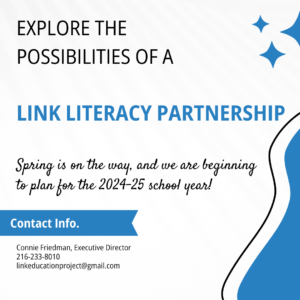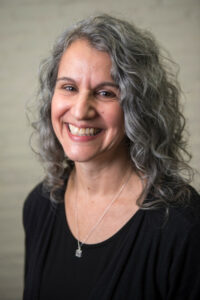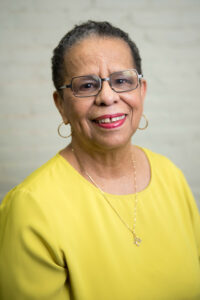What do you think of when you think of summer vacation with your kids? Pool parties? Cookouts? Maybe even a trip to the beach? How about losing two months of knowledge?
Yes, you read that right. Many children lose the equivalent of two months’ worth of learning over summer break. The phenomena is called Summer Slide and—unfortunately—it is very real.
According to a report from the Rand Corporation (McCombs et al., 2011), summer vacation often means a loss of learning for students in both reading and mathematics. And, as you might expect, the loss does not affect all students equally. While many students lose math skills over the summer, the effect is more pronounced in low-income students, who also lose ground in reading. The losses in reading snowball over the years, and affect students’ high school achievement and even graduation rates (Alexander, et al., 2007).
Of course, disparity among children’s achievement based on socio-economic status is nothing new. A quick glance at the newspaper when State test results come out illustrates quite well the relationship between income and achievement. What is not well-known, however, is the fact that, regardless of income, students are making the same gains in reading and math during the school year. In fact, Alexander (2007) found that summer slide accounts for more than half of the difference between the haves and have nots. That is huge in a field like education, which has so many variables. Bottom line … schools that serve low income children are the scapegoat for problems that are really societal in nature.
So … what can we do?
For schools, the solutions are challenging. Summer programs are expensive to operate and to staff. The Rand Report (“Making Summer Count: How Summer Programs can Boost Children’s Learning”), as mentioned above, is an interesting read, and discusses the effectiveness of various programs designed to support summer learning. Components that positively influence outcomes include: small class sizes, differentiation, instruction that is aligned with the school curriculum, maximized participation among students and, of course, parent involvement and support.
Speaking of parents, what can we do to stem the tide of knowledge that is flowing out of our children with each passing week of mindless tv? Well, we can do a lot! Regardless of our respective income levels, we can have an impact on our own child’s summer slide. Below, are a few ideas that are free and/or inexpensive.
Ideas for Keeping up Math Skills in the Summer (adapted from insidetheclassroomoutsidethebox.wordpress.com):
- Read math stories: Kill two birds with one stone and combine math with reading to improve both numeracy and literacy skills. Try this website for some math books: http://bit.ly/9MXY3E
- Connect math to the real world: Have your child add items at the grocery store. Such as, apples are $3.99 a bag, about how much will two bags cost us?
- Play traveling math games: When you stop for gas, have your children round the prices to the nearest number of your choice. For example, you drive by and it’s $2.41 per gallon, have them round to the nearest dollar or dime.
- Cook Together: There are lots of measuring and fractions in cooking! Have your child measure a cup and see how many ounces are in it.
- Board/Card Games: Play these classic board/card games with the whole family:
- Bingo or War for preschoolers and kindergarteners to identify numbers
- Life, Monopoly or Payday for students 3rd grade and up to work on adding and subtracting money
- Battleship for students in 4th and 5th grade to work on coordinate points
- Chess, Clue or Checkers for strategy and problem solving in 1st grade and up
- Don’t forget games such as Sudoko, 24 or many card games such as Go Fish
- Free Apps:
- Adding Apples: Addition
- Coop Fractions: Multiple fraction games
- Virtual Manipulatives: Fractions, decimals and percent manipulatives
- Square 9 Lite: Practice with facts (adding, subtracting, multiplying and dividing)
- Journal or Blog: Have student write about their summer academic fun in any subject area to also practice writing in content area.
Ideas for Squeezing more Reading into your Summer (adapted from Reading is Fundamental):
- Combine activities with books: Encourage them to read a book about their activities. If you’re going to a baseball game, suggest that your child read a book about a favorite player beforehand. In the car or over a hot dog, you’ll have lots of time to talk about the book and the game.
- Visit the library: In addition to all those free books, libraries often have fun activities and motivating reading clubs.
- Lead by example: Let your kids see you read, whether it’s the newspaper, a magazine or a novel. If kids see the adults around them reading often, they will understand that literature can be a fun and important part of their summer days.
- Read with your kids: Pick up a second copy of the book they’re reading and read and discuss it together. If there’s a movie version, watch it together and debate the book versus the movie.
- Relax the rules for summer: Make it fun. Don’t set daily minute requirements. Instead, encourage them to pick up books for fun and help find ways for them to choose to read on their own. You may even want to make bedtime a little bit later if you find that your child can’t put down a book.
- Have plenty of reading material around: Storybooks aren’t the only thing that kids can read for fun. Be sure to have newspapers, magazines, and informational material on hand that might spark the interest of a young reader.
- Use books to break the boredom: Without the regular school regimen, kids need more activities to fill the hours. Don’t forget to take your kids’ favorite reading series along on road trips or even when waiting for a table at their favorite restaurant.
- Read aloud with kids: Share a favorite story or choose one together. Children learn a lot about reading from listening to an experienced reader.
So let’s make the most of our summers. And may the only “slides” our kids experience be at the park and the pool!
_________________
References:
Alexander, K.L., Entwisle, D., & Olson, L. (2007). Lasting consequences of the summer learning gap. American Sociological Review, 72, 167–180.
McCombs, J.S., Augustine, C.H., Schwartz, H.L., Bodilly, S.J., McInnis, B., Lichter, D.S., & Cross, A. B. (2011). Making summer count: How summer programs can boost students’ learning. Santa Monica, CA: Rand.






